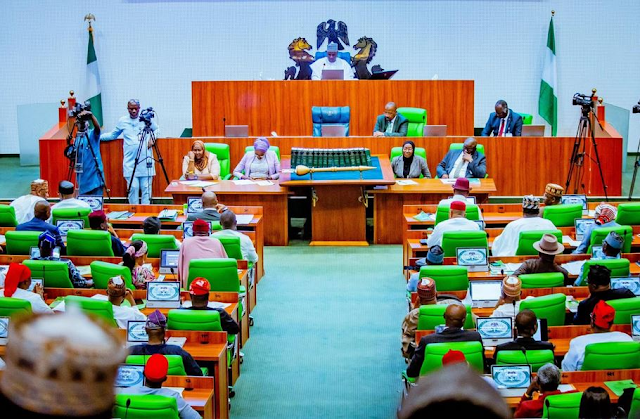A bill seeking to expand Islamic law in the 1999 constitution was on Thursday, October 24, rejected by the House of Representatives.
The bill, which is sponsored by
Aliyu Missau, intended to amend sections 24, 262, 277, and 288 of the 1999
constitution by removing the word “personal” wherever “Islamic law” is
mentioned.
Section 262 (1) of the
constitution states that: “The Sharia Court of Appeal shall, in addition to
such other jurisdiction as may be conferred upon it by an Act of the National
Assembly, exercise such appellate and supervisory jurisdiction in civil
proceedings involving questions of Islamic personal law”
Aliyu Missau argued that the
inclusion of the word “personal” after “Islamic” restricts its application,
especially on Islamic commercial laws.
“The 1999 constitution provided
for personal Islamic law. The constitution did not envisage the dynamism and
development that may come into the country,” he said.
“For instance, in 2003, the
constitution did not foresee the advent of Jaiz Bank which operates under
commercial Islamic law.”
The lawmaker said the word
“personal” should be removed to benefit Islamic commercial law and Islamic international
law, among others.
While some northern legislators
supported the bill, those from the south view the proposal as an effort to extend
the reach of Sharia law.
Opposing the bill, Solomon Bob
from Rivers said the amendment would broaden the application of Islamic law
beyond the “personal matters” envisaged by the framers of the Constitution.
“The implication is that if the
word ‘personal’ is removed, Islamic law would have broader implications. The
word ‘personal’ was put there for a reason,” the lawmaker said.
AbdulHakeem Ado from Kano
supported the bill, saying Islamic commercial law needs to be sustained.
Saidu Abdullahi from Niger
state and Ahmed Satomi from Borno were among lawmakers who spoke in favour of
the bill.
Jonathan Gaza from Nasarawa,
Ademorin Kuye from Lagos, and Awaji-Inombek Abiante from Rivers kicked against
the proposed legislation.
The bill was rejected when it
was put to a voice vote by Ben Kalu, the deputy speaker, who presided over
plenary.


Post a Comment